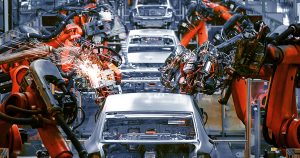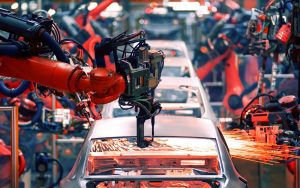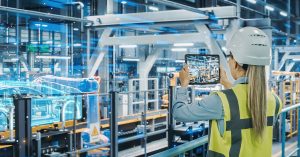
Smart Manufacturing, driven by advancements in automation, data analytics, and connectivity, is reshaping the industrial landscape. This report provides insights into the current state of Smart Manufacturing, focusing on key trends and innovations. Presented by Rockwell Automation, a leader in industrial automation and digital transformation solutions, this report sheds light on the transformative journey of industries towards intelligent, connected manufacturing processes.
**1. **Defining Smart Manufacturing:**
*Overview:* Smart Manufacturing represents a paradigm shift in industrial production, integrating digital technologies to create a connected and intelligent ecosystem. It encompasses the convergence of automation, data exchange, and real-time analytics to optimize efficiency, productivity, and decision-making across the entire manufacturing value chain.
**2. **Key Components of Smart Manufacturing:**
*Overview:* Rockwell Automation identifies several key components shaping Smart Manufacturing:
– **Automation and Control Systems:** The core of Smart Manufacturing, providing real-time control and monitoring.
– **Industrial Internet of Things (IIoT):** Connecting devices and machines to gather and analyze data for informed decision-making.
– **Data Analytics and Machine Learning:** Extracting actionable insights from vast datasets to enhance predictive capabilities.
– **Connectivity and Communication:** Enabling seamless communication between devices, systems, and personnel.
– **Cybersecurity:** Safeguarding interconnected systems from potential threats and vulnerabilities.
**3. **Digital Transformation in Manufacturing:**
*Overview:* The report highlights the ongoing digital transformation journey within manufacturing. Companies are investing in technologies that enable connectivity, interoperability, and data-driven decision-making. Digital twins, predictive maintenance, and advanced analytics are becoming integral to operations, fostering efficiency gains and cost savings.
**4. **Role of Industrial Automation:**
*Overview:* Rockwell Automation emphasizes the pivotal role of industrial automation in Smart Manufacturing. Advanced control systems, robotics, and programmable logic controllers (PLCs) are driving unprecedented levels of precision, flexibility, and scalability in manufacturing processes. These technologies are instrumental in optimizing production, reducing downtime, and ensuring product quality.
**5. **Data-Driven Decision-Making:**
*Overview:* Smart Manufacturing relies heavily on data-driven decision-making. The ability to collect, analyze, and derive insights from data enhances operational visibility and agility. Real-time monitoring and analytics empower manufacturers to respond promptly to changing conditions, improve process efficiency, and address potential issues before they escalate.
**6. **Collaborative Robotics and Human-Machine Interaction:**
*Overview:* The report acknowledges the rise of collaborative robotics and emphasizes the importance of human-machine interaction. Collaborative robots (cobots) are working alongside human operators, enhancing productivity and safety. Intuitive human-machine interfaces contribute to a more user-friendly and adaptable manufacturing environment.
**7. **Supply Chain Integration:**
*Overview:* Smart Manufacturing extends its impact beyond the shop floor to integrate with the entire supply chain. Connected systems enable seamless communication with suppliers, distributors, and customers. This integration enhances supply chain visibility, reduces lead times, and facilitates agile responses to market demands.
**8. **Challenges and Opportunities:**
*Overview:* While Smart Manufacturing brings about transformative benefits, the report acknowledges the challenges faced by industries. These challenges include cybersecurity concerns, the need for skilled workforce training, and the integration of legacy systems. However, these challenges present opportunities for innovation, collaboration, and the development of holistic solutions.
**9. **Case Studies and Success Stories:**
*Overview:* The report provides case studies and success stories illustrating the real-world impact of Smart Manufacturing. These examples showcase how companies, leveraging Rockwell Automation solutions, have achieved tangible results in terms of efficiency improvements, cost savings, and enhanced competitiveness.
**10. **Future Trends and Outlook:**
*Overview:* Rockwell Automation concludes the report by offering insights into future trends in Smart Manufacturing. Anticipated developments include the further integration of artificial intelligence, continued advancements in human-machine collaboration, and the evolution of edge computing for enhanced real-time processing.
**Conclusion:**
Rockwell Automation’s “Current State of Smart Manufacturing Report” offers a comprehensive overview of the transformative journey towards intelligent, connected manufacturing processes. As industries embrace the principles of Smart Manufacturing, guided by the expertise of Rockwell Automation, the future promises continued innovation, efficiency gains, and a paradigm shift in how products are conceived, produced, and delivered in the global marketplace.





